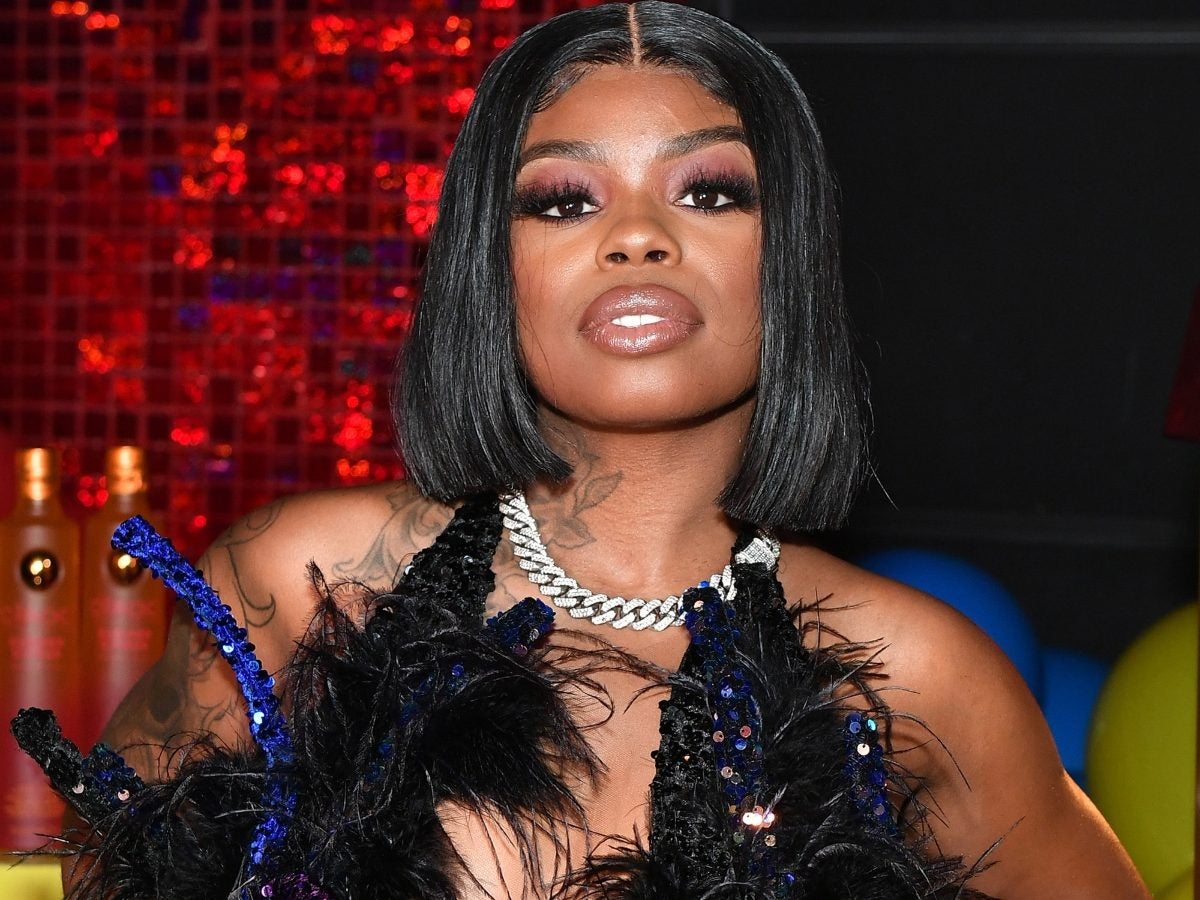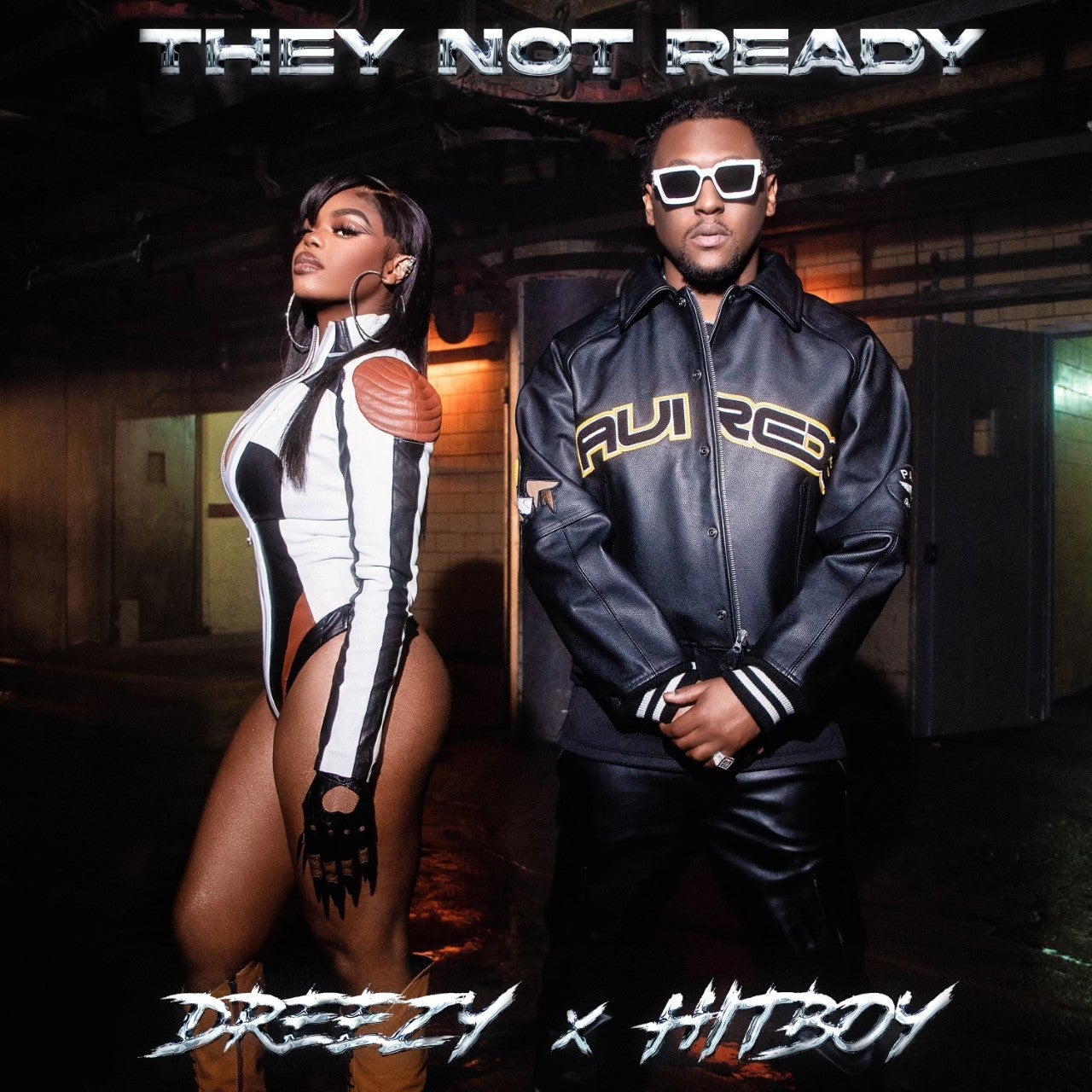
Dreezy, the 28-year-old Chicago emcee whose new song “They Not Ready” was released today, is an expert at captivating audiences using equal parts beauty and bars. Born Seandrea Sledge, she experienced her first taste of mainstream success with her 2016 debut album No Hard Feelings. Singles like “Body” alongside Jeremih and the T-Pain assisted “Close To You” made Dreezy a radio darling as her vigorous songwriting and line delivery showed her as a formidable force in hip-hop begging to be reckoned with.
Dreezy has proudly rode her own wave for years as both a highly skilled musician and performer. “They Not Ready,” like her upcoming album HITGIRL which is executively produced by Hit-Boy (Jay-Z, Kanye West, Nipsey Hussle, Drake), emphasizes her lyrical sturdiness. From confident taunts (“I think it’s time to put these wack b_tches out they misery”) to an enviable rhyme cadence, she has made it clear that her craft will always come first.

“I grew up in a jazz band…I grew up playing the saxophone and the flute. I used to scat and sing–then I started getting into poetry,” Dreezy tells ESSENCE. “I was in a poetry club, so that jump started me rapping. I’ve always been a musical person. I think No Hard Feelings made me a live artist…most of the instruments were live. The music was really hip-hop and R&B heavy but heavier on the R&B. My first album molded my talent and versatility if that makes sense. ‘Cause we had trap, we had R&B, we had motivational music, we had a little bit of everything. I felt like No Hard Feelings was the polished Dreez.”
One of the most memorable moments in Dreezy’s career so far was in 2019 when she hopped on the remix to Hitmaka’s “Thot Box.” Although the original version had the likes of Meek Mill, 2 Chainz, YBN Nahmir, A Boogie with da Hoodie and Tyga, its sequel boasted a lineup of all women rappers. When Latto, Young MA, DreamDoll and Chinese Kitty joined Dreez on the track, it immediately set the internet ablaze. Not only was the song a hit, but each personality was allowed to unapologetically bask in their aesthetic. She says the song’s popularity is a testament to the fact that the creative approach was a proverbial breath of fresh air for listeners.
“A lot of people were excited just because…let’s be real: girls ain’t collabing on a track like that no more. Like who’s doing it? That was the first time in a long time where you saw a decent amount of females with a decent amount of talent all on one song and it meshed real good. You could go put four women on one song and that shit sounds terrible. Hitmaka did a real good job with the order of it, the voices of it and making it sound cohesive. I like how he had everybody in their own vibe.”
When it comes to the art of the freestyle, Dreezy refuses to hold anything back. When she dropped the “Covid Flow Freestyle” last month, fans were enamored with the way she sonically kept her cool even though the world around her remains in disarray (“Even in a pandemic imma pop my shit/ Can’t tell me I’m not that b-tch”). But with last year’s “Beatbox (Bday Freestyle)”—her take on SpotemGottem’s “Beat Box”—she verbally had her foot on the whole industry’s neck. Though many speculated it was a diss track about one of her female peers (she ends the track by stating: “Now they say we related, b-tch I ain’t your sis”), Dreez insists she was addressing something bigger than petty beef. “When I came out and stamped myself as Big Dreez a lot of people started running with the trend, which is cool. I know I didn’t invent the word big, but I started the trend and its facts. So when I went Big, it was on some big dog type shit. I wasn’t even thinking about the girls, you know what I’m saying?
“I was thinking about me standing next to these n-ggas because that’s who I’m in the booth with…who I’m going toe to toe with. But if you know you got your drip from somebody else, pay homage, pay respect. You ain’t even gotta pay respect–but just be real if you gonna stand on being a real artist. So that’s how ‘Beatbox’ was inspired…I just had to clear that shit up. I had to stand my ground. I’m not finna be sneak dissed and I’m not finna be bullied out my name.”
Dreezy is fiercely protective of the identity she’s created because she knows that being a Black woman in entertainment—and in hip-hop no less—means that she will never be afforded a handout. Dreez shared that it’s ultimately determination and talent that will take you places. “We gotta keep busting these doors down and keep forcing ourselves into these spaces. But we gotta keep the talent important, you know what I’m saying? Cause if the game just becomes BBLs and looks and you ain’t gotta have no talent, then we ain’t gonna get nowhere. I like the fact that when Dreez walks into a room ya’ll respect me for my bars. I’ve earned enough respect to just be a lyricist. And being Black–well that’s just a plus.”